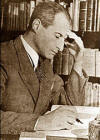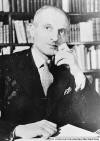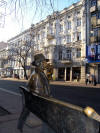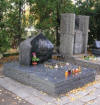General Józef Wybicki
Junior High School
Number 24 in Lodz

European citizens in my city,
the citizens of my city in Europe.
Liceo Scientifico "Pitagora" Rende, Italy

Jews / German / Polish / other nationalities /
art and culture / sportsmen / writers and poets / musicians / scientists / businessmen / others /
JEWS
- Izrael Kalmanowicz Poznański
- Marek Edelman
- Max Factor
- Ary Sternfeld
- Jerzy Kosinski
- Artur Rubinstein
- Julian Tuwim
- Jurek Becker
Julian Tuwim (from Hebrew טובים tovim, meaning "good"). He was born on 13 September 1894 in Lodz and died on 27 December 1953. Educated in Lodz and Warsaw (studied Law and Philosophy at Warsaw University). Co-founder and leader of the Skamander group of experimental poets with Antoni Slonimski and Jaroslaw Iwaszkiewicz in 1919. He was a major figure in Polish literature, mostly known for his contribution to children's literature.
Since the very beginning and throughout his entire creative life Tuwim was satirically inclined. He supplied sketches and monologues to numerous cabarets. In his poetry and as a columnist he scoffed obscurantism and bureaucracy as well as militaristic and nationalistic trends in politics. Burlesque Bal w operze [Ball in the Opera House], written in 1936, is considered his best satiric poem.
In 1939, at the
beginning of World War II and Nazi Germany's occupation of Poland, Tuwim
emigrated first through Romania to France, and after France’s
capitulation, to Brazil, by way of Portugal, and finally to the USA,
where he settled in 1942. During that time he wrote Kwiaty Polskie
(Polish Flowers), an outstanding epic poem in which he remembers with
nostalgia, his early childhood in Lodz. In April 1944 he published a
manifesto, entitled My, Zydzi Polscy ("We Polish Jews") which expresses
great fury experienced by the poet.
Returned to Poland after the war, in 1946.
The Locomotive /
To The Common Man /
The Dancing Socrates /
Grass / Wife /






